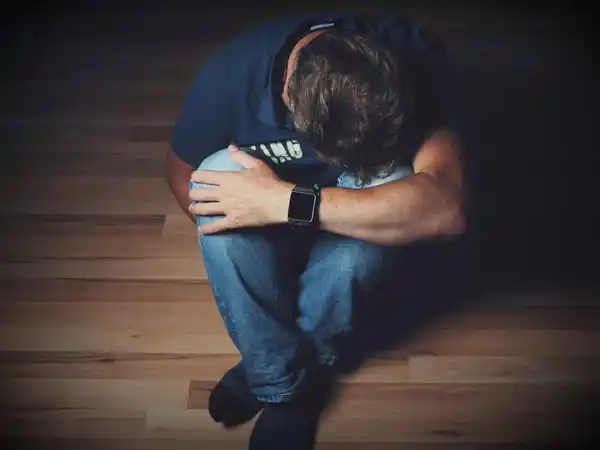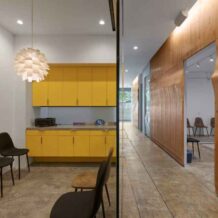Depression and sadness are distinct, with depression being a persistent and severe mental disorder that significantly impairs daily functioning, while sadness is a normal, temporary emotional response. Depression involves symptoms like changes in appetite, sleep, and concentration, and may require professional treatment such as medication and therapy. Recognizing the difference is crucial for appropriate intervention and recovery. Seek professional help if prolonged sadness interferes with life, as depression is treatable with the right support and resources.
Depression vs Sadness: How to Tell the Difference
Throughout life, it is natural to experience a range of emotions. Amongst these emotions is feelings of sadness. Everyone feels sad at times, especially after some kind of event such as a breakup or the loss of a loved one. However, there are times when an individual may be dealing with depression vs sadness.
Often, when someone is feeling persistent sadness or feels sadder than usual, they may say that they are feeling depressed. While "feeling sad" and "feeling depressed" are used interchangeably, there is a distinction. It is important to know the difference between the clinical condition called depression and normal, temporary feelings of sadness.
The Difference Between Depression and Sadness
 Depression may involve feelings of sadness, but the two are not the same. If you are experiencing sadness due to a life event, it is likely that you do not have depression as sadness is a natural reaction. People also may experience changes in mood due to hormonal changes such as puberty or menopause.
Depression may involve feelings of sadness, but the two are not the same. If you are experiencing sadness due to a life event, it is likely that you do not have depression as sadness is a natural reaction. People also may experience changes in mood due to hormonal changes such as puberty or menopause.
Additionally, certain medical conditions or medications may contribute to an altered mood. However, if you do not feel better over time, or if your sadness begins to interfere with life, you may be experiencing depression. At times, prolonged sadness can actually turn into depression.
If you are concerned about whether you are experiencing depression vs sadness, there are a few key ways to tell the difference between depression vs sadness.
First, depression is more than just feeling sad. Depression is a mental disorder that will cause a significant effect on a person's life. For a condition to be considered a mental disorder, it must cause a disturbance in an individual's cognition, emotional regulation, or behavior. Meaning, that when depression is present, it will negatively impact a person's thoughts, feelings, and behaviors.
A key difference between depression vs sadness is that depression will always cause a change in function. This means that when someone is depressed, they will no longer be able to do things that they normally enjoy or are able to do. For example, a person who is depressed may no longer find joy in activities they once loved, may struggle to concentrate or focus on anything, or may start to isolate themselves from friends and family.
Among mental health disorders, research indicates that depression is one of the most common in the United States. The National Institute of Mental Health reports that in 2020, around 21 million adults in the United States, ages 18 and older, had at least one major depressive episode. This is the equivalent of 8.4% of the population.
Sadness, on the other hand, is a normal emotion that everyone experiences at times. While sadness can be intense, it is usually short-lived and does not interfere with everyday life the way depression does. Further, people who are feeling sad may still be able to enjoy activities and spend time with loved ones.
Additional ways to tell the difference between depression vs sadness include the following:
- Intensity: Depression is more than just feeling blue for a day or two. It is a persistent feeling of sadness and despair that does not go away.
- Duration: Depression lasts for weeks, months, or even years. It may come and go in cycles, with periods of feeling better followed by periods of feeling worse, but it is always present to some degree.
- Functioning: Depression can make it hard to concentrate, sleep, eat, and enjoy activities that used to bring you happiness. It can also lead to absenteeism from work or school, and social withdrawal.
If you are experiencing any of these symptoms, it is important to seek professional help. Depression is a treatable condition, and there is no shame in seeking help. With the proper diagnosis and treatment, you can start to feel better and get back to your life.
When people think of depression, they often picture someone who is sad all the time. However, sadness is just one symptom of depression. In addition to feeling sad, people with depression may also experience other symptoms. These symptoms can include changes in appetite or weight, sleeping too much or too little, loss of interest in activities that were once enjoyable, fatigue, difficulty concentrating, and feelings of worthlessness or hopelessness.
In more severe cases of depression, individuals may feel as if life is not worth living. They may think about suicide as a way to relieve depression symptoms. When the symptoms associated with depression last for more than two weeks, a healthcare professional may diagnose an individual with major depressive disorder (MDD).
Treatment for Depression
When an individual is diagnosed with depression, there is hope for the restoration of balance in their life. Depression is a treatable condition, and a variety of treatment options are available, including medication and different therapies.
There are many different types of depression medications available. The most common type of depression medication is antidepressants. Antidepressants work by balancing the chemicals in the brain that control mood.
Examples of antidepressants include:
- Selective serotonin reuptake inhibitors (SSRIs): Examples of SSRIs include fluoxetine (Prozac), paroxetine (Paxil), and sertraline (Zoloft)
- Serotonin and norepinephrine reuptake inhibitors (SNRIs): Examples of SNRIs include duloxetine (Cymbalta) and venlafaxine (Effexor)
- Norepinephrine and dopamine reuptake inhibitors (NDRIs): An example of an NDRI is bupropion (Wellbutrin)
- Tricyclic antidepressants: Examples of tricyclic antidepressants include amitriptyline, imipramine (Tofranil), and nortriptyline (Pamelor)
- Monoamine oxidase inhibitors (MAOIs): Examples of MAOIs include isocarboxazid (Marplan), phenelzine (Nardil), and tranylcypromine (Parnate)
While all of these work to alleviate depression in different ways, they have one major similarity: they all take weeks or even months to begin working. This is why it is important to engage in a combination of different therapeutic interventions that include therapy.
Working with a psychotherapist is another key element in depression treatment. Psychotherapy can help you understand your depression and how it’s affecting your life. You can learn new ways of thinking, develop healthy coping skills, and build a support network. Some forms of psychotherapy that are used during depression treatment include the following:
- Cognitive behavioral therapy (CBT): CBT is a type of psychotherapy that has been shown to be particularly helpful for depression. CBT can help you identify and change negative thinking patterns and behavior patterns that may be contributing to your depression.
- Dialectical behavioral therapy (DBT): DBT focuses on helping people accept themselves, even with their depression. It also teaches skills to deal with stress and manage emotions.
- Individual therapy for mental health: This type of therapy can help you identify and work through the issues that may be contributing to your depression.
- Group therapy for mental health: Group therapy provides support and guidance from others who are dealing with depression. It can also help you share your experiences and learn from others who are going through similar things.
Depression Treatment with Tulua Health
 If you are seeking an answer to the question "what is the difference between depression vs sadness," you may be experiencing prolonged symptoms of depression. At Tulua Health, we offer depression treatment that can help you manage your depression and improve your quality of life.
If you are seeking an answer to the question "what is the difference between depression vs sadness," you may be experiencing prolonged symptoms of depression. At Tulua Health, we offer depression treatment that can help you manage your depression and improve your quality of life.
Our programs for depression treatment include outpatient services such as partial hospitalization programs (PHP), intensive outpatient programs (IOP), and standard outpatient therapy. We also offer medication management services to help you manage your depression with medication.
If you are ready to seek depression treatment, contact us today to speak with a member of our team. We are here to help you heal and live a happier, healthier life.
Discussion
Safe, Nurturing, Healing
Tulua Health is More Than a Recovery Center
Safety and support form the cornerstone of recovery at Tulua Health. We offer a nurturing environment that extends beyond treatment. Our facilities boast modern amenities, ensuring privacy, comfort, and a range of supportive programs. Here, every aspect of our sober living homes is designed to provide you with a sanctuary that you can proudly call home.
We Accept Many Health Plans





It Starts here
Get a Free Health Coverage Verification
Wellness doesn't just happen. Our team of behavioral health specialists can help find the plan that is right for you. If you're ready for a new start, click below to submit a free health insurance verification request.



